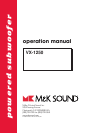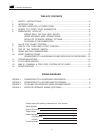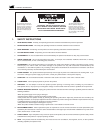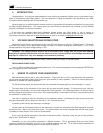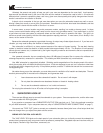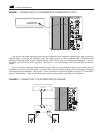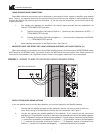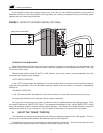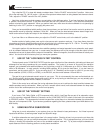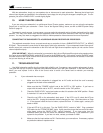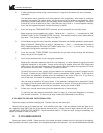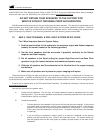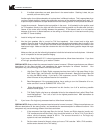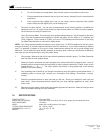
Ultimately, the amount and quality of bass you get in your room are dependent on the room itself. Low frequency
bass sounds are affected most by the size of the room and the method of construction used to build it. All rooms are
different when it comes to reproducing bass, and in any given room, bass quantity and quality changes when the sub-
woofer is moved from one location to another.
A simple rule to remember is that you get more bass when you move the subwoofer towards any wall or corner.
Moving it away from a wall or corner gives you less bass. Remember that the floor also loads the subwoofer, and that
maximum bass is found with the woofer on the floor in a corner.
In some rooms, a corner location may excite resonance modes, resulting in a muddy or boomy sound. In these
rooms, a more central location along a wall, away from the corner, may give better results. If you experiment, try to find
a spot where no bass notes seem to overpower others and the overall sound is powerful and clean. The goal is to
achieve a smooth sound quality, with the entire bass spectrum equally prominent. In most rooms, this is directly in the
corner, not the center of the room.
Because the subwoofer generates a great deal of energy, its output may vibrate objects close to it. If you hear such
vibration, you may need to damp the vibration of nearby objects.
One subwoofer is sufficient in a stereo system because of the nature of human hearing. The ear-brain hearing
system is unable to locate the direction of bass sounds below approximately 150 Hz. The direction of low frequency
sounds (drums, basses, etc.) is determined by the higher frequency overtones and harmonics that are reproduced by
the satellite speakers.
Your powered subwoofer has an exceptionally sharp (36 dB/octave) low-pass filter to remove the midbass and
midrange frequencies, unwanted in a subwoofer. This makes your M&K subwoofer truly non-directional.
Your M&K subwoofer is magnetically shielded. Shielding avoids magnetization of the shadow mask of the televi-
sion's picture tube, which will distort the television's picture. If this ever happens to your set, turn it off and on a few times
to use the set's built-in degaussing circuitry. If the problem persists, contact a TV technician and ask him to use an exter-
nal degaussing coil.
No matter where you put the subwoofer, you must allow room for ventilation of its heatsink and backplate. The sub-
woofer's power amplifier is mounted on the backplate, and it generates heat.
1. Leave clearance around the subwoofer's heatsink. Do not cover it with drapes.
2. Do not place the subwoofer near baseboard heaters or forced air heating outlets.
3. Do not use the subwoofer outdoors or in a humid environment.
Do not plug the subwoofer into an AC outlet until all system wiring is complete.
5. SUBWOOFER HOOK-UP
There are two different ways to connect the subwoofer to your system. One uses speaker wire, and the other uses
interconnect cable with RCA-type jacks.
If your receiver or processor has a SUBWOOFER OUTPUT RCA-type jack, use it. This is the preferred connection
for your M&K subwoofer. If your component does not, skip to "USING SPEAKER WIRE CONNECTIONS" on page 7).
You cannot use "TAPE OUT" jacks to connect your subwoofer, because these jacks have a fixed output level that
does not change when you adjust the system volume control.
WIRING WITH THE RCA JACK INPUTS
The "LINE LEVEL" RCA jacks on the back panel of your subwoofer allow you to directly connect the subwoofer to
preamp-level components such as surround sound processors, preamplifiers, integrated amps and receivers with pre-
amp outputs, Electronic High-Pass filters, crossovers, etc.
POWERED SUBWOOFER
5



